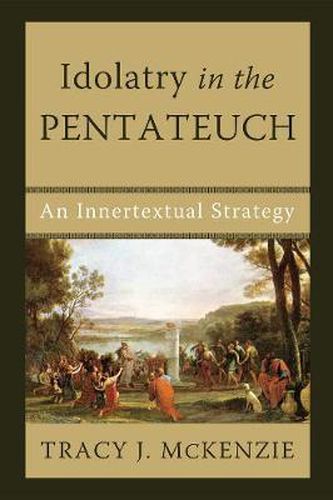Readings Newsletter
Become a Readings Member to make your shopping experience even easier.
Sign in or sign up for free!
You’re not far away from qualifying for FREE standard shipping within Australia
You’ve qualified for FREE standard shipping within Australia
The cart is loading…






This title is printed to order. This book may have been self-published. If so, we cannot guarantee the quality of the content. In the main most books will have gone through the editing process however some may not. We therefore suggest that you be aware of this before ordering this book. If in doubt check either the author or publisher’s details as we are unable to accept any returns unless they are faulty. Please contact us if you have any questions.
Idolatry in the Pentateuch addresses both the manner in which the Pentateuch was produced and how theological intentions can be discerned from the texts that constitute it. McKenzie attempts to read the final shape of the Pentateuch while not ignoring the diachronic complexities within its pages. Using a compositional approach to the Pentateuch, he establishes his methodology, analyzes several idolatry-related texts, and traces the theological intentions through an inner-textual strategy. Moreover, McKenzie briefly considers the history of interpretation through the last few centuries and discusses the state of Old Testament studies as he understands it.
$9.00 standard shipping within Australia
FREE standard shipping within Australia for orders over $100.00
Express & International shipping calculated at checkout
This title is printed to order. This book may have been self-published. If so, we cannot guarantee the quality of the content. In the main most books will have gone through the editing process however some may not. We therefore suggest that you be aware of this before ordering this book. If in doubt check either the author or publisher’s details as we are unable to accept any returns unless they are faulty. Please contact us if you have any questions.
Idolatry in the Pentateuch addresses both the manner in which the Pentateuch was produced and how theological intentions can be discerned from the texts that constitute it. McKenzie attempts to read the final shape of the Pentateuch while not ignoring the diachronic complexities within its pages. Using a compositional approach to the Pentateuch, he establishes his methodology, analyzes several idolatry-related texts, and traces the theological intentions through an inner-textual strategy. Moreover, McKenzie briefly considers the history of interpretation through the last few centuries and discusses the state of Old Testament studies as he understands it.